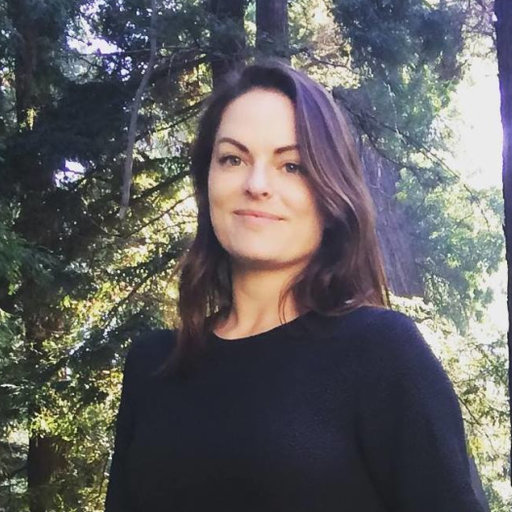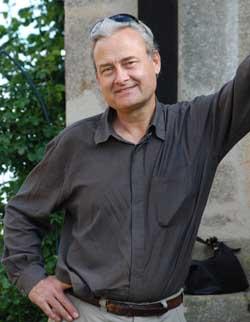
Biography:
Emma Gilheany is an environmental anthropologist and archaeologist of the contemporary. She uses archaeological, ethnographic, archival, and multimedia methodologies to rethink how resistance to imperialism has been theorized using the ephemeral material record of the circumpolar north. She is particularly interested in using archaeological epistemologies to intersect with and serve Nunatsiavummiut sovereignty and is committed to public and community-engaged scholarship. Her research has been funded by the Nunatsiavut Government, the Social Science Research Council (SSRC-IDRF), the National Institute of Social Sciences, the National Science Foundation (NSF-GRFP and NSF-GRIP), and the Deutscher Akademischer Austauschdienst. At the University of Chicago, she has been awarded the Roy D. Albert Prize, and has been supported by the Center for International Social Science Research, the Segal Fund for Social Sciences Research on the Military, and the Arts, Science and Culture Initiative. She earned a BA in Anthropology from Columbia University, where she won the Ralph and Rose Solecki Prize.
Dissertation: An Anthropology of Nunatsiavut Icescapes: Practices as Politics
While many scholars consider climate change as a recent crisis of myriad causes, this dissertation historicizes and specifies the way that military occupations (such as the US Air Force constructing and maintaining numerous Cold War radar bases in Inuit communities) in the circumpolar north have changed and harmed local ecologies. I trace how Nunatsiavummiut use capacious future-oriented landscape practices to circumvent this harm. Landscape practices include hunting, but also include building cabins far from the community, collecting water from icebergs, creating community gardens using soil from outer islands, and navigating increasingly unpredictable sea ice. The nature of the material record in the sub-Arctic means that archaeologists often struggle to access residues of the past that disappear with seasonal melting. I take this seasonality as an opening to demonstrate that an extended and multimodal engagement can elucidate absences in the archaeological record. Ultimately, this dissertation contributes to overlapping theoretical (the Anthropocene, human-environment relations, sovereignty), historical (militarization and Indigenous nations, Inuit politics and history from the Cold War to the present, American and/vs. Canadian imperialism) and methodological (collaboration, research as settler colonialism, the limits of historical methods) concerns.
Recent Research / Recent Publications
My research examines colonialism and climate change in Nunatsiavut, the Inuit self-governing region of Labrador, Canada. Through archival, ethnographic, and archaeological research, this project will create an anthropologically-informed environmental history that can illuminate past and present landscape practices as both resilient to climate phenomena and resistant to local missionary attempts at control. In the past four decades, circumpolar sea-ice has shifted dramatically, with Labrador’s coastal ice declining by almost 40%. This project argues that the colonial entanglements in Nunatsiavut are not limited to the Moravian missionaries and scientists who first began frequenting the area in 1752, but include larger global histories of capitalism and industrialization. Broadly, I contend that one must historicize climate change beyond contemporary crisis to fully understand its resonances.
I ask: What is the nature of colonialism in the Arctic? How did people in the past respond to the intrinsically connected forces of colonialism and climate change? How do contemporary communities that are particularly vulnerable to climate change, and that are seeing tangible differences in their environment, imagine, experience and adapt to these changes? This project is uniquely situated to take perceived difficulties in Arctic research and use alternative archival, ethnographic, spatial and organic evidence to recast historical agencies and clarify the dynamics of complex circumpolar landscapes.

Project Title: Ghostly Invasions: Political Theologies of Fire in Post-Coup Bolivia
In Bolivia, uncontrolled wildfires have been weaponized by a populist far-right as exemplary of the duplicity and deceit of Leftist politicians and irrationality of their Indigenous and populist supporters. This study is aimed at learning about collaborative responses to climate change that have emerged since Bolivia’s 2019 coup, including feminist horticultural projects, anti-imperialist environmental organizing, and grounded land restoration efforts. Such efforts push back against the co-optation of conservationism within a polarized nationalist milieu, wherein conservative politicians have used uncontrolled fires to inflame tensions between Indigenous and non-Indigenous peoples. Methodologically, the study combines attention to environmental changes with an attunement to the broader political configurations at play in global climate change and in localized efforts to address a rapidly heating planet. Renewed attention to the intersections of race, religion, and climate can cast new light on urgent environmental crises, and on the limits to science in resolving wildfires. Resulting publications will support scholarly and policy efforts to address climate change through the tools of interpretive social science, pressing past a focus on cultures of fire to examine their religious and theological underpinnings and to reveal how competing ontological frames obstruct—and generate—novel possibilities for climate justice.
Biography:
Mareike Winchell is an Assistant Professor of Anthropology at the University of Chicago. Her research focuses on the racialization of property in light of ongoing histories of Indigenous land dispossession, and how such formations find new expression in contemporary engagements with environmental change. Winchell's first book, After Servitude: Elusive Property and the Ethics of Kinship in Bolivia (University of California Press, 2022), traced the ways Quechua people in central Bolivia call upon and actively repurpose the past in their efforts to navigate legacies of labor subjection and sexual violence. She is currently at work on two projects (one ethnographic, another archival) that extend her interest in contested formations of racial property to issues of climate change, on the one hand, and more-than-human intimacies, on the other. Winchell is involved in several collaborative projects concerning the intersections of race and climate change. These include collaborative ethnographic research with the Center for Indigenous Peoples of Chiquitos Turubó in Bolivia and comparative research and policy advising as part of the Habitable Air project.

Project Title: Emergent Logistics and Experimental Ethnography
“Emergent Logistics and Experimental Ethnography,” explores the problem of methodological engagement with the complex patterns of logistical movement that power the circulation of money and energy globally. Building upon our previous work, “Logistics in the Making of Mobile Worlds,” we aim to expand our Experimental Field School to the diverse geographies of commerce, speculation, finance, energy-production, and distribution. Our project interrogates these processes through sites such as Chicago’s e-commerce facilities, banking firms, and energy plants that power the transportation hubs and data centers of the city, to Delhi’s expansive networks of gasoline and diesel transportation, electric rickshaws, and emerging transition to sustainable energy systems and decarbonization. We plan to cultivate permanent networks of research at the University of Chicago and the UChicago Delhi Center by inviting scholars from around the world to join our Experimental Field Schools, where we will develop methodological approaches to pressing logistical questions through site visits, observation, and collaborative design.
Biography:
Julie Y. Chu is Associate Professor in UChicago's Anthropology Department and the author Cosmologies of Credit: Transnational Mobility and the Politics of Destination in China. She is currently completing a book entitled The Hinge of Time: Chronopolitics and Infrastructure at China’s Global Edge. Based on fieldwork with Chinese migrant couriers and customs inspectors traversing the Taiwan Strait, the Indian Ocean and the Pacific (via ports and border zones spanning the PRC and the U.S.), this work examines how figures of “infrastructure” animate the global politics of time in three distinct keys -- as matters of constancy, rhythm and non/event. Additionally, she is currently developing a new ethnographic focus on the politics and poetics of logistics, especially in relation to e-commerce driven innovations in moving goods, people and information according to the increasing aspirations for on-demand seamless "fulfillment." This includes launching the collaborative research project, “Logistics in the Making of Mobile Worlds,” and co-editing the Spring 2002 issue of Roadsides on #Logistics.

Alan Kolata leads ongoing interdisciplinary research projects studying human-environment interactions over the past 3000 years in the Lake Titicaca basin of Bolivia, on the north coast of Peru and most recently in Thailand and Cambodia. His recent research interests include comparative work on agroecological systems, human-environment interactions, the human dimension of global change, agricultural and rural development, and archaeology and ethnohistory, particularly in the Andean region.